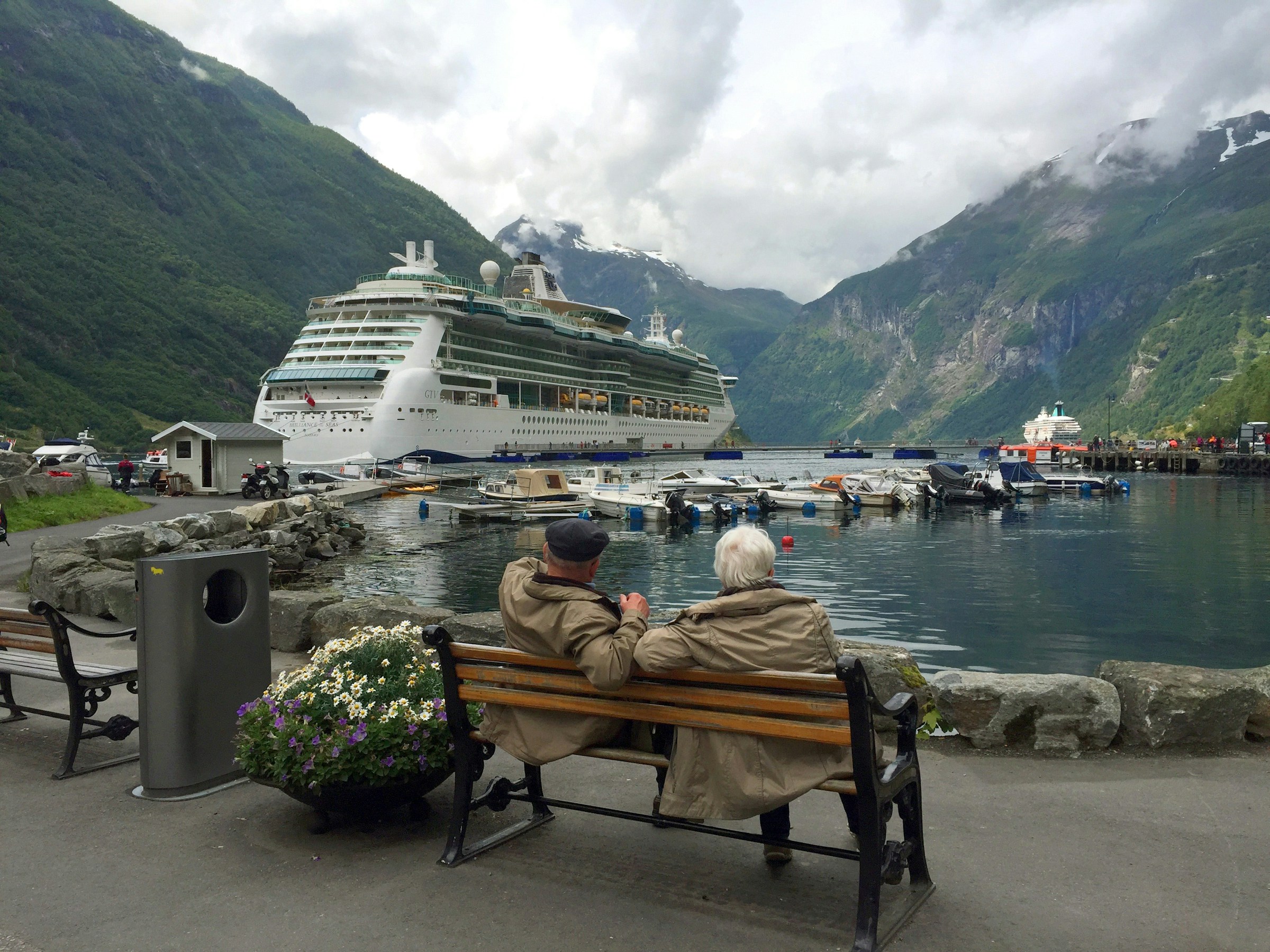Retiring abroad often starts as a simple daydream. You picture yourself waking up to a new view, paying less for groceries, walking to a small cafe where the barista knows your name. It looks like an escape from stress, from high costs, from routines that no longer feel meaningful. But once you move past the postcard version, you realise that retiring abroad is not just about a different backdrop. It is a full redesign of your life systems in a place where almost nothing runs on autopilot. The question of what to consider when retiring abroad is really a question about how your health, money, identity, and daily rhythms will hold up in a new environment over many years, not just during the first six months.
Many people begin with cost of living, which seems like the most obvious factor. It feels straightforward to compare rents, grocery prices, and restaurant bills between countries. If somewhere looks cheaper, it is tempting to assume it will automatically be easier. Yet cost of living is not just a spreadsheet problem. It is also an energy problem. The price you pay in mental and emotional effort matters as much as the number on the bill. If you move to a place where you struggle to negotiate contracts, understand bills, or navigate local rules because of language or cultural differences, your “cheaper” life may come with a constant layer of stress. Public transport may be affordable but unreliable. Utility prices may jump during certain seasons. Simple tasks like setting up internet or paying rent may require more paperwork and in person visits than you expect. All of that is a cost, even if it does not show up in your budgeting app.
For a retirement that actually feels calm, it is not enough to ask whether you can afford life in a new country today. You also need to ask how predictable those costs are and how much decision making effort they demand from you. A place that looks slightly more expensive but offers stable prices, clear systems, and low friction can end up feeling far more livable than somewhere that is technically cheaper but constantly confusing. A good retirement abroad is not defined by finding the lowest number. It is defined by building a stable, boring cost base that gives you space to focus on your health, relationships, and daily joy.
Health care then moves to the center of the conversation. In your home country, you probably have a rough sense of how hospitals work, where to go in an emergency, and how your insurance behaves. Abroad, you start again. You cannot assume that every place with a nice view will have the kind of medical infrastructure you need at 70 or 80. So you have to think beyond price and look closely at how care is actually delivered. The distance to the nearest hospital matters. The availability of specialists matters. The ability to access your usual medication, or safe alternatives, matters. If every appointment requires a translator or if you are never quite sure whether you understood the doctor, you will feel more anxious at a time when you most need calm and clarity.
Insurance is another layer in this system. Some countries require you to buy local insurance in order to qualify for a retirement visa. Others allow a mix of local coverage, private international plans, or continued access to a home country scheme. The headline price is not the only important detail. Exclusions, waiting periods, and age related changes in coverage can become critical as you get older. It is worth thinking in scenarios. What happens if you break a bone, develop a heart condition, or need long term physiotherapy. Can the local system support that, and can you move through it without constant confusion or fear. When you trust the health care infrastructure around you, you free up emotional energy to enjoy the rest of your life. When you do not, the uncertainty shadows every decision.
Beyond health and money lies the more subtle question of your legal right to stay. Beautiful weather and friendly locals cannot protect you if your visa is fragile. The rules that determine who can live in a country, for how long, and on what conditions are not background details. They hold your entire plan together. Retirement visas may require a minimum monthly income, a specific level of savings, or investment in property or government bonds. Some permits need to be renewed frequently or depend on your relationship status or your employment status, even if you are mostly retired. If your right to stay disappears when your finances change or your personal life shifts, you will live with a low level anxiety that never fully goes away.
For a retirement abroad that feels secure, you need a residency structure that can survive health changes, market downturns, and normal life transitions. It is worth studying the rules carefully and imagining your future self ten or fifteen years ahead. You want paperwork that supports long term stability, not an arrangement that leaves you checking the calendar and worrying about the next renewal every few months. That sense of legal security is its own form of performance boost. It lets you build routines and relationships without feeling like everything is temporary.
Then there is the human side of the move. The early months in a new country can feel like an extended holiday. Every street looks interesting, every meal feels like a discovery, and every small success in the local language feels like a victory. Over time, novelty fades and your attention shifts from scenery to structure. You begin to notice a quieter question. Who will I see on a random weekday afternoon. Who will check in if I do not show up where I usually go. This is the social architecture of retirement, and it is easy to underestimate.
Areas with a strong expat presence often offer fast access to community. You can meet people who share your language and have similar reasons for being there. The tradeoff is that many of these friendships exist in a high churn environment. People leave when their visa changes, when family needs arise, or when they decide to return home. In smaller towns and more local neighborhoods, relationships may be more stable but harder to start, especially if you do not speak the language well or understand local social norms. Either way, you need to treat community as something to be designed, not left to chance. Joining interest based groups, fitness classes, volunteer programs, or religious communities can give structure to your week and a sense of belonging that goes beyond polite small talk.
At the same time, your identity will be shifting. Back home, you may have been known as a professional, a parent, a neighbor, or a community leader. Abroad, you will often be seen first as the foreign retiree. That label can feel either freeing or flattening. To avoid feeling like your life has shrunk, it helps to build new roles that give you purpose. You might become a mentor in a local program, a regular volunteer, a serious hobbyist, or simply a familiar and friendly face in certain spaces. These roles do not replace your past. They help your current life feel textured and meaningful.
Daily routines connect all of this. Retiring abroad does not only mean having more time. It means running your days inside a different physical and cultural environment. If you rely on walking to stay healthy and grounded, a car dependent location will quietly work against you. If exercise is central to your mood and sleep, you will feel the difference between a neighborhood with safe sidewalks, nearby parks, and accessible gyms, and one where every outing feels risky or inconvenient. Weather becomes more than a talking point. Long stretches of heat, humidity, cold, or pollution can change how often you go outside, when you move, and what kind of social contact you get. Over years, these conditions shape both body and mind.
Small details also accumulate. Nighttime noise, access to fresh food, reliable internet, and the availability of places where you feel safe and welcome to spend time all contribute to the texture of your days. None of these things may appear dramatic on their own. Yet a handful of misaligned details, repeated every day, can drain your energy. When you evaluate possible destinations, it is useful to imagine a very ordinary, slightly difficult day there and ask yourself whether the place still feels workable.
Money structure sits underneath everything, even if you are careful with spending. If your income or savings are held in one currency while your costs are in another, exchange rate swings will become part of your life. A strong home currency can feel like a pleasant wind at your back. A weak one can force changes to your lifestyle that you did not plan for. Instead of assuming the best case, it is safer to build buffers. Fixed rental agreements with clear terms, some reserves in the local currency, and a conservative view of investment returns can prevent you from feeling like your retirement is being constantly pulled up and down by markets.
Access to your money is just as important as the amount. You need to understand how easily you can move funds across borders, what local banking rules apply, and whether there are caps or delays that might slow you down in an emergency. A smooth path from your assets to your day to day expenses is part of the invisible infrastructure that supports a stable life abroad.
Finally, a thoughtful exit strategy can turn a frightening leap into a manageable experiment. It may feel strange to plan for leaving a place before you have even arrived, but flexibility is one of the best protections you can build for your future self. Health conditions can change, relatives may need more support, or you may simply discover that a country you loved as a visitor does not feel right as a long term home. Understanding the costs and logistics of leaving, the penalties for ending leases, the taxes on selling property, and the rules for re entering your home country systems can keep you from feeling trapped. Knowing that you can adjust course without destroying your finances or losing access to care makes it easier to commit to your first choice with confidence.
In the end, asking what to consider when retiring abroad is another way of asking how to test a completely new life before you fully commit to it. One practical way to do that is through extended stays during different seasons rather than immediate permanent moves. During these trial periods, you can pay attention to how well you sleep, how your body feels, how often you feel lonely versus connected, and how much friction appears in simple tasks such as buying groceries, paying bills, or getting medical help. These signals tell you more about long term fit than any list of pros and cons.
Retirement abroad works best when you treat it less like an escape and more like a design project. You are not searching for a perfect place where nothing goes wrong. You are building a resilient system that can carry you through good days and bad days in a new context. If a country still feels livable on an ordinary, slightly messy Tuesday rather than only on a sunny holiday weekend, you are likely closer to a sustainable choice.










.jpg&w=3840&q=75)




